May 28, 2015 | Blog - Mary Marcus
Sometimes one doesn’t want to freeload on friends. Sometimes, especially if one is married, one wants to be alone.
When that happens, and I’m in NY for a night or two, I try and stay at the Excelsior if I can get a deal.
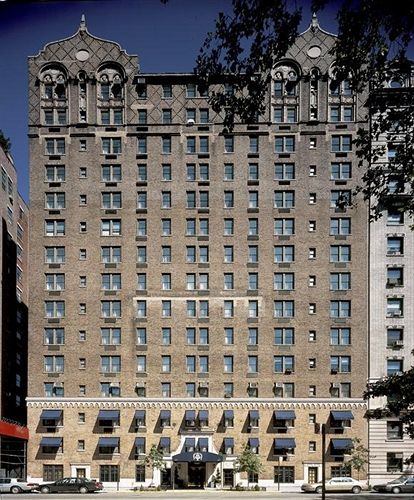 I’m at the Excelsior now, typing this in the lobby and checking my email. I lived here, when I was first in New York. It was cheap enough to live by the month. And I did that, off and on, until I could get a place of my own. I was young, green and I didn’t really get it that older successful men asked young girls out to dinner to talk about business chiefly to see if they could get laid.
I’m at the Excelsior now, typing this in the lobby and checking my email. I lived here, when I was first in New York. It was cheap enough to live by the month. And I did that, off and on, until I could get a place of my own. I was young, green and I didn’t really get it that older successful men asked young girls out to dinner to talk about business chiefly to see if they could get laid.
I’d known him through my first real job. I was writing publicity at that time and he liked my work enough to invite me to dinner with him and his girlfriend when we were all working on a project in another city.
He was the American president of a very old English firm whose name practically anyone would recognize. I called him when I moved to New York, to touch base and ask for freelance work.
He replied by asking me to dinner.
I assumed the girlfriend would be there. And the wife would be home in the suburbs. I could tell the woman he traveled with was his girlfriend. And in the press release I had written, I had the info that he had a wife and three children and they lived in the ‘burbs outside of NY.
I guess, on a subconscious level l also knew I wasn’t his type. So I felt safe.
After dinner, he offered to drop me home and the struggle began almost immediately, the second we got in the cab. He was winning; the cab driver was doing nothing to help me out. And I was calling for help and pleading with the man who was pinning me down.
“I’m not even your type, I can tell I’m not. Why are you doing this?”
He took a beat. He thought about it. We were tussling.
And yet he took the time to tell me, as if he were proud of it, as if it were a totally original idea, like the theory of evolution or something.
“I like your wrists; they’re so small and vulnerable.”
Maybe he gave up. Maybe it was too much work. The cab was stopped at a red light. We were on the Upper West Side. And this unpleasantness had been going on since West 9th Street or thereabouts. I escaped.
I stood on the sidewalk and stared at them both:
“Shame on you!”
Then ran down the street to the Excelsior.
It was old and scary in those days. Not like it is now, this pleasant place where I’m sitting in a padded seat and can look up and see the nicely dressed attendants and the prosperous looking guests. There’s a restaurant with a fancy name—back then it was just above an SRO. The denizens were down and out, the elevators were slow, the hallways creepy.
When I got back to my room the phone was ringing. Those old hotel phones really knew how to ring. Nothing like the simulated computer ringing of one’s cell phone. I went for it, thinking it was a guy who I was crazy about sneaking out to the nearest phone booth to commit telephone adultery. It was the president rapist on the line. Why, oh why had I told him where I was staying?
I’ll never forget his calm implacable voice.
“I’m downstairs. Are you sure you haven’t changed your mind?”
“Yes I’m sure.”
He took a beat. I heard him breathe.
“OK,” he said at last, then he broke the connection.
I could see him downstairs in his expensive suit getting my room number, maybe even with a twenty, getting a key as well. I shoved the dresser in front of the door; underneath I found a dead roach and a condom still, thank God, in the wrapper. I lay awake for most of the night, waiting for the dresser to move.
Flash forward a few years later. I am walking on the sidewalk in front of MOMA at my lunch hour. I am very pregnant. I’m so big that the next week my advertising agency sent me home because I was scaring everyone. I even think they gave me two weeks severance. And the opportunity to get my job back six weeks after the baby was born. It wasn’t exactly a very enlightened time. My boss, a charmer, who the following year stiffed me out of a three thousand dollar job, was in the habit of chasing me around the office telling me pregnant women turned him on.
There he is on the sidewalk. The Queen had just knighted his direct boss.
“RAPIST!”
That’s what I shouted at him. I saw him cringe and turn away, running scared of me this time.
I just googled him. Nobody’s heard of him anymore. Not even Google. Good. Excellent. Just someone with the same unusual spelling of his name and the right age, living in Summit, New Jersey.


 by
by 
May 19, 2015 | Blog - Mary Marcus
Pile the bodies high in the Palisades and Malibu,
Shovel them under, and let me work, I am the grass
And I am dead— (apologies to Carl Sandburg)
Even though it rained last night, a really pounding rain, and this morning it’s drizzling, it’s not enough and won’t last long enough to do any good. For months now, whenever I walk the streets of my neighborhood, I think of the grass poem by Carl Sandburg. I am the grass I cover all. My version: I am the grass and I am dead.
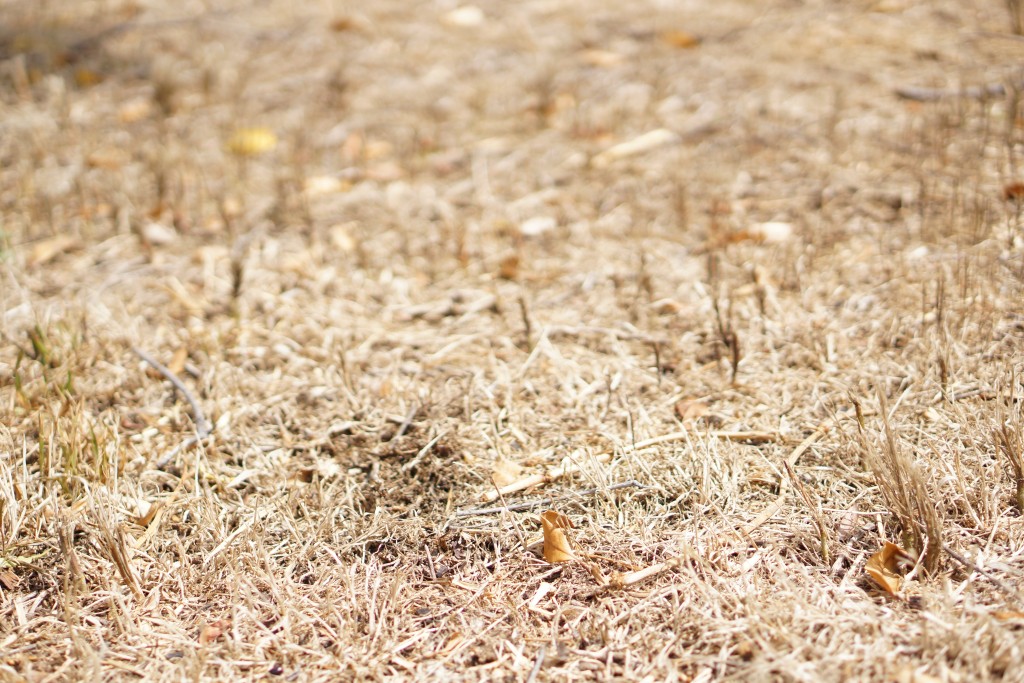
We need snow in the mountains, and 40 days of rain down here. The kind of rain that causes mud slides and floods. We are drying up here in Southern California. Literally dying for rain. Still, I have to say, for the present moment, it is wonderful to go outside without the blasting sun beating down. My dog Henry, who while born in Arkansas, on Nodie Williams’ Frayed Knot Farm, is freaked out by the rain. He would barely go out for his early morning stroll in the drizzle, and because he wouldn’t do his biz, a measure of how freaked out he is, an hour later, I’ve just come in from taking him out once again. He sniffs around like something strange is going on. I don’t think he remembers too much about the rain, though he’s been in rain in New York. He doesn’t think it’s natural. Or maybe he thinks he’s getting a bath. Henry is three years old and most of the time he’s in LA. He doesn’t have much first hand experience of rain.
A majority of my thrifty neighbors in Little Osaka have already let their little patches of St. Augustine go–or have planted Astroturf–we don’t have any grass, our landlord has sustainable plantings on our little patch of soil. Though, I’m used to it now, the patches of dead where there used to be soft green grass. If things keep up like this, there won’t be grass in the park down by the ocean where we like to stroll. Then no more of Henry doing that hilarious dog maneuver where he rolls over on his back, and does the Hoochie Koochi with his paws in the air so he can feel the soft grass against his back.
I am the grass and I am dead.
I was talking to a friend of mine and complaining about the water bill, ours is about a hundred dollars a month just for water. She owns a rental property in Santa Monica with three units and it’s a thousand dollars a month for water. A thousand dollars a month! Just for water.
I am the grass and I am dead.
Apparently other than agriculture, almonds in particular, the biggest offenders are the great green lawns in Beverly Hills and Bel Air. Outside of town, trees are exploding. There’s no way to water them and suddenly on hot day, one will just blow up. Cattle ranches are closing (I guess that means, more dead animals). The huge Mormon Church that’s a couple of miles from here has let its vast green expanse go. I haven’t been over to see it. Because it’s just too depressing. The private golf clubs seem unaffected by the petty concerns of the hoi poloi, when I drive by, they appear as verdant as ever.
They say we have one more winter. And after that, the water is gone.
I am the grass and I am dead.


 by
by 
May 15, 2015 | Blog - Mary Marcus
I can’t imagine the great B.B. King ever resting in peace.
I imagine him up in that great Blues Club in the Sky. He’s leaning into the microphone. It’s smoky in the club, the lights are blue and it smells like booze and sweat and the sweet perfume that some of the ladies are wearing.
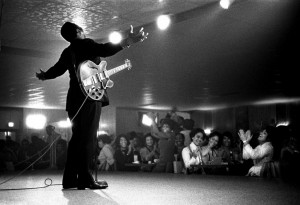
Photo by Charles Sawyer. Copyright © 1997
Lucille is wailing and Bobby Blue Bland, who went before him, is beside B.B. and they are singing a duet of “The Thrill Is Gone” (one of the great pieces of music ever written in my book).
Some years ago, the King of Sweden recognized Mr. King for his contribution to music. I love the idea of the son of a sharecropper, born in Mississippi, making it all the way up to the King of Sweden, on account of his genius.
The Thrill is certainly gone from the world now that the great, the incomparable, B.B. has left the planet. May his soul soar as he made our spirits soar!


 by
by 
May 13, 2015 | Blog - Mary Marcus
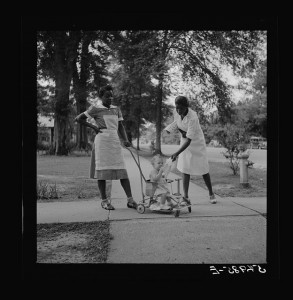
This is a picture from The Library of Congress, dated 1940. Housekeepers in Port Gibson, Mississippi, only three hours from my hometown.
There is a lot I like about The Help. I like the tenderness between the housekeepers and the children. I certainly felt that with Aline, who inspired me to write Lavina. The book brought to light some of the unfairness that ran through southern households like the rotten roots of a decaying tree, and got people talking about it, remembering it.
But in my opinion, humble as it may be, Kathryn Stockett, author of The Help, got a few things wrong in her bestselling book.
- To Kill A Mockingbird was banned from Louisiana classrooms as recently as 2013. The Help was set in the 1960’s and no bookstore in my hometown of Shreveport, Louisiana, would have carried the book written by the main character. Skeeter’s book would have been banned from the bookstores, libraries and definitely the schools. The premise of The Help doesn’t address the systemic racism that southern towns operated on, even though it nails small town life.
- The pie. The infamous pie makes Mini seem like a savage. I grew up in the kitchen, and no one I ever knew would have done anything like this. Never. Not every racially diverse character needs to be a hero, but this act was so sub-human it actually deepens the stereotypes that The Help ostensibly aimed to diminish.
- Skeeter—a semi-virtuous wellborn white girl—saving the day for the domestics. Nobody saved the day for any African American woman I ever met. My mother paid our housekeeper Aline maybe ten dollars more a week than any of the other women got. But Aline lived below the poverty level and her family no doubt subsisted from the scraps we left behind.
Like Harper Lee’s Atticus Finch from a generation before, standing for justice, and so many other stories of the South, the good white person leading the dark people out of misery is a conceit. It’s more emotionally loaded than a conceit. I was always interested to read the stories of the heroes who saved themselves. Or the stories of the heroes who never got saved.
The Help is about girls: the mean girls and the good girls. But girls weren’t necessarily the perps in the Jim Crow South. They were disenfranchised themselves. Fathers, Brothers, Uncles: they were the perps. We never had anyone like Atticus Finch in my hometown, that I can recall, though I always wanted him as my father. Or was it Gregory Peck I wanted as my father? It’s hard to tell.
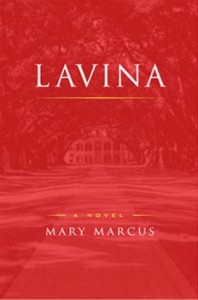 I don’t know of any Freedom Riders from Shreveport, Louisiana—though I think there probably were a few. One of the reasons why I wrote Lavina is because I wanted to imagine what would have happened if someone like Aline got herself involved in such a momentous event. I wanted to imagine Aline as her own hero.
I don’t know of any Freedom Riders from Shreveport, Louisiana—though I think there probably were a few. One of the reasons why I wrote Lavina is because I wanted to imagine what would have happened if someone like Aline got herself involved in such a momentous event. I wanted to imagine Aline as her own hero.
I was lucky enough to talk to a real Freedom Rider when I was writing Lavina. He was a rabbi, and he told me how scared he was being in jail in Florida and what it was like sitting down at the Woolworth’s counter. He had a big rich rabbinical voice and he was waving his arms as he gave me a very dramatic account of that afternoon at the counter and the night he spent in jail.
I didn’t think to ask him whether the African Americans with whom he sat down got bailed out of jail, as he did. I wish I had.
You can read an excerpt here of Lavina, if you’d like to, or order it from your local bookstore or on Amazon if you’d like to read the whole thing.
And these classics of southern fiction are, of course, available at your local bookstore or on Amazon. Links below.
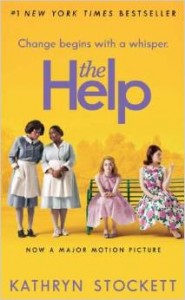
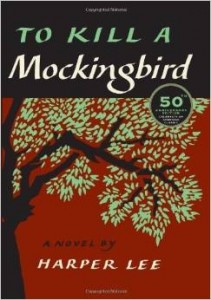


 by
by 
May 7, 2015 | Blog - Mary Marcus
It’s Mother’s Day and she’s materialized for a visit. She looks younger than when I last saw her and wonderful, like she’s never had a sick day in her life. Her hair is silvery grey and it’s as soft and shiny as a length of silk. And it’s beautifully cut and styled. Maybe she got her face lifted or she’s getting just the best injectible job ever at that great dermatologist in the sky. She’s smiling; her brown almond shaped eyes crinkle at the corners when she smiles at me. The only thing that hasn’t changed is she’s wearing bright coral lipstick, though apparently in the other place, she’s discovered lip-gloss.
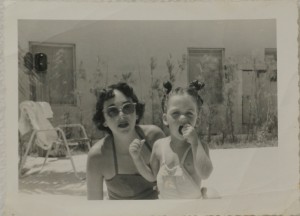
The author and her actual mother.
Everything I do is just wonderful! She loves my little house, the Buddha at the door, the oil painting above the black cabinet. Henry is the cutest dog she’s ever seen, and so well behaved. And she’s so happy to meet my husband at long last; she’s been watching us from the hereafter, ever since we got married!
Husband looks just bewildered. And I have to say, a little scared. Oy, what if this happens to me, he seems to be saying. Then he goes into the other room.
As it turns out, Mama’s been given special permission from the powers who control such things to return on Mother’s Day, just to say, “Mary, I love you, you were the best daughter, I’m so proud of you for ‘Lavina’, and for everything else as well!”
The landline rings. It’s my son on the phone to wish me Happy Mother’s Day. I put her on and the two of them talk for the very first time.
Afterwards, she walks around my house, nodding at this, smiling at that. She picks up a book and says, “Didn’t I give you that?”
When it’s time for her to go, she holds out her arms. When I move toward them, she disappears, leaving a lingering smell of Estée Lauder’s Youth Dew and a Shubert piano sonata playing in the background.
I stand in my living room basking in the glow of unconditional love and approval from my mother. Imagination is of course, created in childhood. The child lacks, the child imagines it’s a different world, a world created in her own making. If you end up being a writer, this unfortunate habit plagues you for the rest of your life.
My husband reappears carrying the leash. Henry is wagging his tail and jumping up and down if he could talk he’d tell me, “I’ll always love you unconditionally.”
If only humans could!
Happy Mother’s Day!


 by
by 
 I’m at the Excelsior now, typing this in the lobby and checking my email. I lived here, when I was first in New York. It was cheap enough to live by the month. And I did that, off and on, until I could get a place of my own. I was young, green and I didn’t really get it that older successful men asked young girls out to dinner to talk about business chiefly to see if they could get laid.
I’m at the Excelsior now, typing this in the lobby and checking my email. I lived here, when I was first in New York. It was cheap enough to live by the month. And I did that, off and on, until I could get a place of my own. I was young, green and I didn’t really get it that older successful men asked young girls out to dinner to talk about business chiefly to see if they could get laid.







